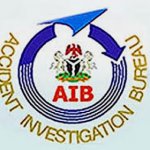
In about four months from now, all things being equal, Nigeria particularly its air traveling citizens may soon have another national carrier, Nigeria Air courtesy of the President Muhammadu Buhari-led government.
Leading this hectic project is the minister of state for aviation, Senator Hadi Sirika who has never hidden his passion and determination to ensure this government fulfill its earlier promise to ensure Nigeria has a new national carrier fourteen years after the liquidation of the defunct former Nigeria Airways.
ALSO READ: Tension in Delta, as Uduaghan dumps PDP for APC
Though many key players within and outside the aviation sector had criticized the process the minister has been applying to bring about the national airline, the obvious fact is that the project has gone too far to be doubted with the unveiling of the airline’s livery and its presentation to the whole world at the last Farnborough Air Show in London for the main purpose of attracting credible foreign investors.
While the efforts to ensure the new airline kicks off in December continues in earnest, as expected, people are still asking certain questions which may not necessarily be in bad faith but as a way of ensuring the mistake of the past does not rear its ugly head again.
In other words, the minister and his team in charge of this national exercise should look into all the dust being raised by all the different groups for the purpose of making amends where necessary.
This brings to the fore again the concern being raised by stakeholders including the domestic airlines about the rumour making the round that the federal government has concluded plans to merge two of the existing airlines, Arik Air and Aero Contractors to form the new national carrier come December.
Information flying around presently has indicated that while Arik Air’s facility may be used for the Nigeria Air’s operations, that of Aero may be used as the maintenance base for the new carrier.
The insinuation has gone to show that the call sign of Aero that used to be ‘NG’ has been changed to ‘NIG’ in preparation for the new carrier while Arik Air’s call sign has not been changed.
The call sign is a unique name or abbreviation adopted by an airline to identify or differentiate it from other airlines particularly during communications with the control tower.
The decision to transform the two airlines to the new national carrier if true may not be a surprise to stakeholders in the sector as many key players across the sector had queried the need for a new national carrier while there were already two airlines being managed for government by its agency, AMCON after their take over due to huge indebtedness.
Since the two airlines already have the required structures on ground, it may not be out of place to make do with them and this will cut the huge cost that would have been incurred.
As harmless as the exercise would have been, the only problem lies in the style being adopted by the government team packaging the deal which to many Nigerians is shrouded in secrecy.
Because the two airlines are now being managed by government, the government has the right to do whatever it wants to do with them, but it is only reasonable for the same government to come out clean on what it has up its sleeves.
At any rate, if eventually the rumour of the merger plan is anything to go by, certain things must be put into considerations that will greatly lead to the smooth take off of the new national carrier come December.
In the first place, where lies the fate of the workers in the two airlines because it is not certain that all of them will be cooped; has government made plans on how to pay the severance package of those whose services will no longer be required?
How does the government intend to placate the former owners of the two airlines who at one time or the other invested in the airlines before they were taken over due to indebtedness.
Who will be the shareholders in the new airline, what will be the final stake of government, who are the technical partners, what about the embarrassing refusal to pay the former workers of the defunct Nigeria Airways fourteen years after the airline was unpopularly liquidated, among many other questions calling for answers.
The need to seriously look into these issues becomes pertinent if the government really wants to start the new national carrier on a clean slate devoid of litigations and labour disputes.






